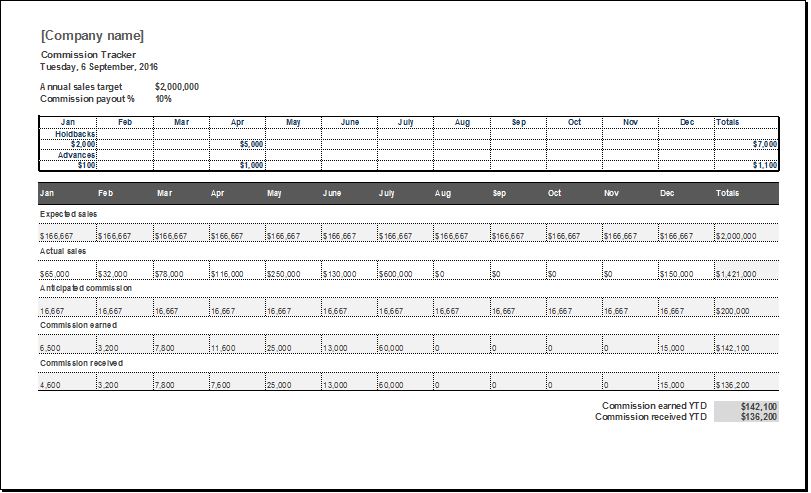A sales commission tracker is a tool that assists organizations in tracking and calculating the commission received by their sales staff. The commission is a type of incentive compensation that pays salespeople for meeting or exceeding sales goals. A successful sales commission tracker should be able to track sales properly, compute commissions, and generate informative data to assist firms in making educated decisions.
Uses of the tracker
Businesses must first specify their sales commission structure before deploying a sales commission tracker. This includes figuring out what the commission rate will be and how it will be computed. The commission fee, for example, could be a percentage of sales or a flat rate for each sale. The commission rate may also differ depending on the type of goods sold or the salesperson’s performance.
The sales commission tracker should be able to reliably track sales data once the sales commission structure has been created. This comprises the date of the transaction, the product sold, the sales price, and the commission rate of the salesperson. The sales commission tracker should also be capable of appropriately calculating commissions based on the chosen sales commission structure.
An efficient sales commission tracker should give extensive information that can help firms make educated decisions in addition to tracking and computing commissions. This can help organizations build feedback systems that can then help in growing business and adding value to the business model.
With this approach, businesses might use the sales commission tracker’s reports to identify top-performing salespeople and areas for improvement. These reports can also assist firms in setting sales goals, tracking progress, and adjusting their sales commission structure as appropriate.
Importance of sales commission tracker
One of the primary advantages of employing a sales commission tracker is that it can aid in the improvement of sales performance. When salespeople know that their efforts will be rewarded with a commission, they are more likely to perform successfully.
Businesses can help to keep their sales employees motivated and focused on completing their sales targets by providing accurate and up-to-date information about their commission earnings.
A sales commission tracker can also assist firms to reduce the risk of errors and boost the accuracy of their commission calculations. Manual calculations can be time-consuming and error-prone, but with a sales commission tracker, companies can be confident that their commission calculations are correct and up to date.
Another significance of using a sales commission tracker is that it promotes transparency and accountability in firms. Businesses can promote oversight by publishing full data on sales employees’ commission earnings, which can assist to create confidence between sales personnel and management.
Lastly, employing it as a feedback system, businesses might use the sales commission tracker’s reports to identify top-performing salespeople and areas for improvement. These reports can also assist firms in setting sales goals, tracking progress, and adjusting their sales commission structure as appropriate.
Conclusion
To summarize, a sales commission tracker is a vital tool for organizations who want to track and calculate their sales commissions effectively. A sales commission tracker can help firms make informed decisions and meet their sales targets by improving sales performance, reducing the risk of errors, and increasing transparency and accountability.

File Size 45 KB